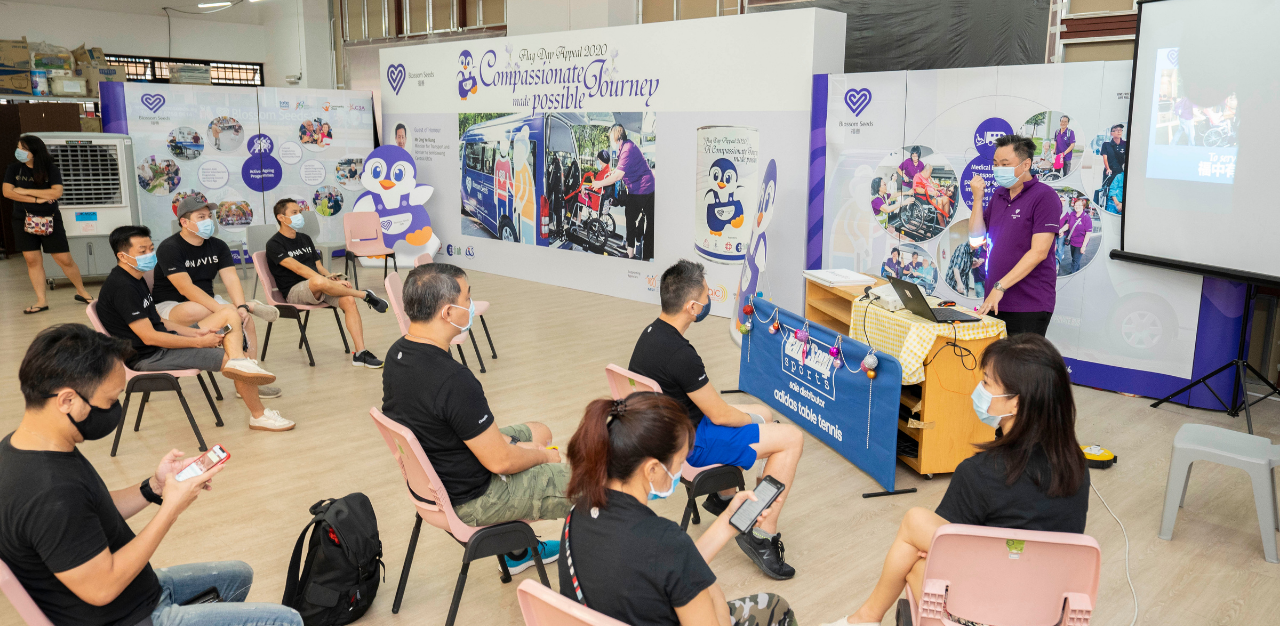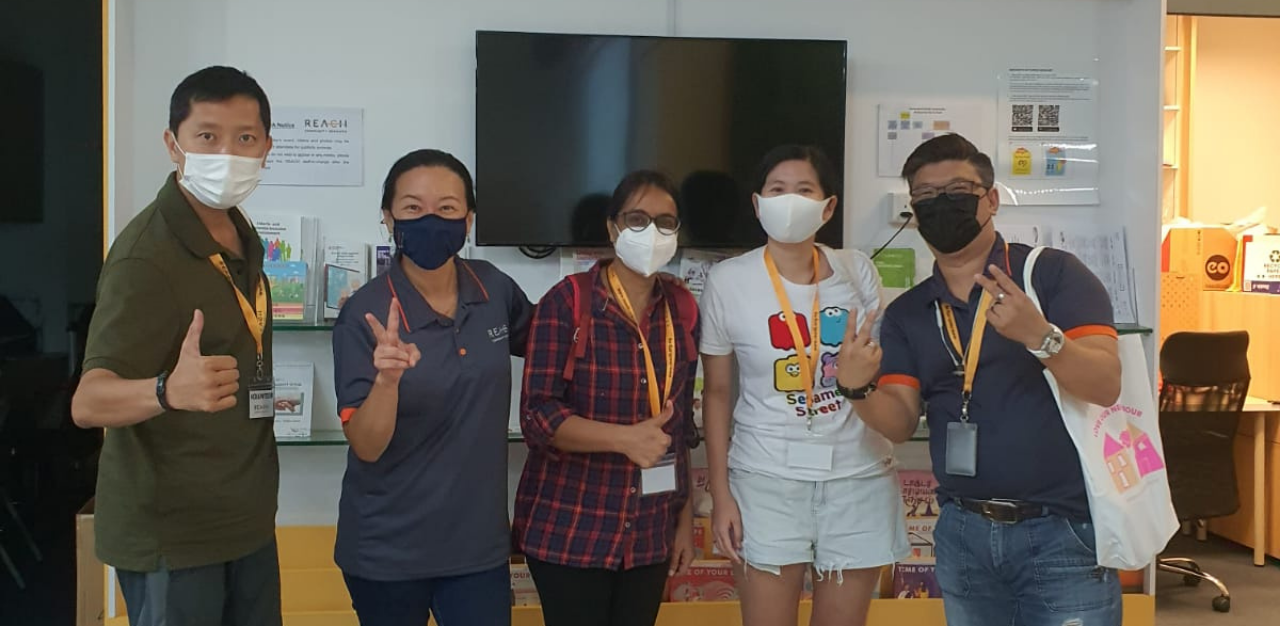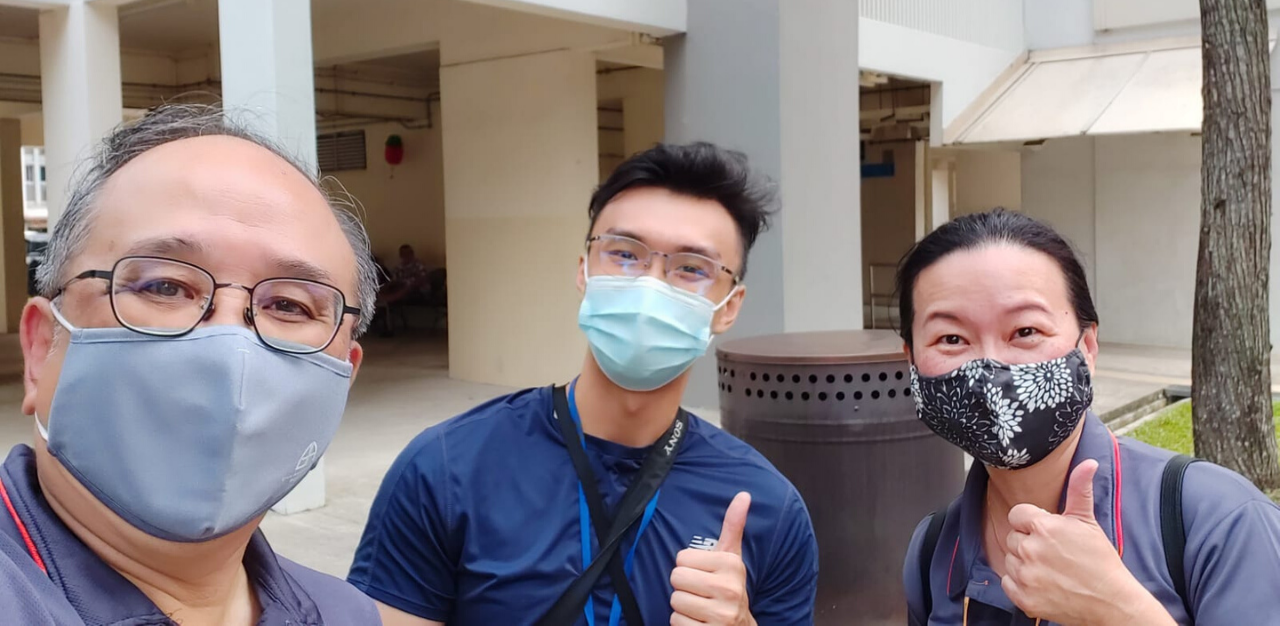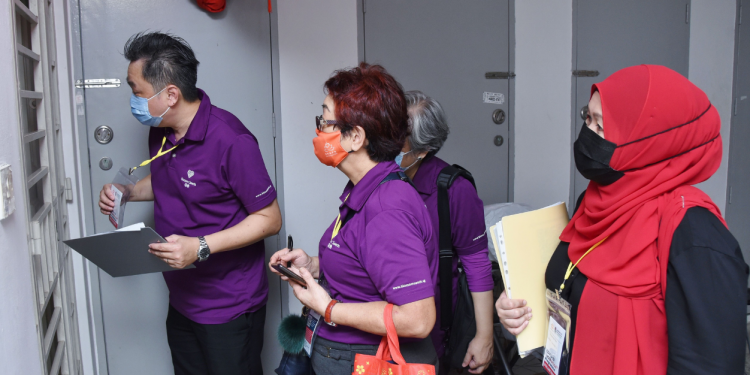Volunteers are often the lifeblood of social service agencies, and their effective care and management can make or break a non-profit organisation. This is where dedicated volunteer managers play a crucial role, hired under the National Council of Social Service’s Enhanced Volunteer Manager Funding Scheme. TheHomeGround Asia sat down with some newly-minted volunteer managers to get their take on why they took up the mantle and how they are shaping the future of social service agencies in Singapore.
Having volunteered with Blossom Seeds for the past three years, an invitation to hop on board as a full-time volunteer manager came at an opportune time for Ken Lai.
As a former real estate agent, Mr Lai’s career was hit hard by the COVID-19 pandemic. With a child on the way, his response to the invitation was simple: “When the calling comes, it’s a no-brainer. I stepped in immediately.”
Now, Mr Lai puts his prospecting skills and thick skin developed over more than 10 years in the real estate industry to good use; recruiting volunteers to the organisation’s efforts to befriend and support lonely and vulnerable senior residents.

The other volunteer managers TheHomeGround spoke to share similar experiences. After spending a majority of their careers in the corporate world, they now harness their skills to benefit the social services sector; streamlining and improving the volunteer management process in their respective social service agencies (SSA), and helping other volunteers do the same.
Stepping into the role of a volunteer manager
Much like Mr Lai, Teo Shan Shan and Winston Sng also switched to being volunteer managers during the pandemic, after the National Council of Social Service (NCSS) launched the Enhanced Volunteer Manager Funding Scheme (VMFS) in 2020.
Having taken a break from the corporate world as a senior sales manager, Ms Teo recognised that she was well-equipped to continue contributing to the workforce, and found a new purpose as a volunteer manager with REACH Community Services (REACH).
The SSA is a charity organisation serving low-income communities, underprivileged children and youths-at-risk, as well as individuals with mental health issues such as anxiety and depressive disorders.
“It is in line with how I see myself in this stage of my life,” she shares, “to be able to come alongside people, particularly the low-income, the vulnerable, the youth-at-risk, and the community, to see how I can contribute my part to society.”

Despite having only joined REACH at the beginning of the year, Ms Teo says, “I already find that there’s great fulfilment in what I do.”
Likewise, Mr Sng was invited at the end of 2020 to join Prison Fellowship Singapore (PFS) as a full-time volunteer manager, where he had volunteered for over 12 years.
In taking up this role, he highlights how his past experience in the manufacturing and human resources sector was applicable: “It was an amalgamation of all the different skills which I was fortunate to have been able to build up over the years.”
Ho Siew Cheong, the Chief Executive of REACH, believes that the role of a volunteer manager is an accessible entry point for those looking to enter the social service sector for the first time.
“It is where transferable skills from many other jobs can be leveraged,” he explains, citing examples of how Ms Teo’s publishing background was useful in communicating the purpose of REACH to their volunteers.
But while the role may be an entryway into the social services, do not underestimate its challenges. Says Ms Teo, “It’s actually very steep in terms of learning. There’s a lot to do.”
She adds: “It’s a role with many hats. It’s a HR role in one with a coordinator. I joined the team… knocking at doors, going to homes to distribute goodie packs.”
Still, Ms Teo enjoys the journey: “It has been very fulfilling to see the smiles and blessings being shared. I think that’s really wonderful.”
The importance of volunteer management
Besides personal fulfilment, volunteer managers are crucial to the smooth operation of SSAs. From recruiting volunteers, to training and developing them, and from recognising their work, to retaining them, volunteer managers have a hand in every part of the process.
“We are the in-between of the charity and the volunteers themselves,” explains Mr Lai. “A volunteer manager is very important to bridge the expectation of the staff and the volunteers. If not, there might be a mismatch. We don’t want volunteers to jump charities, jump organisations, then we have to retrain, which wastes a lot of resources.”
Mr Ho adds that looking after the needs of volunteers includes creating programmes and systems that help track volunteer engagement and training, and opening feedback channels to improve processes or to redeploy when necessary.
Volunteer managers also address the challenge of retaining volunteers.
“One of the big issues we have in volunteering [in this sector] is that while we can find volunteers,” says Mr Ho, they don’t stay for very long… and sometimes, we don’t understand why.”
Mr Sng shares that volunteers leave for many reasons other than wanting to stop: “Sometimes, it’s due to their life stages, or maybe they are taking a breather for the time being but there are opportunities in other areas.”
Through his experience with PFS, he elaborates: “You may be an incare volunteer [someone who volunteers with inmates], but when the people you are interacting with are released, you can move into aftercare work. Or if that doesn’t appeal during a certain stage of your life, you can move into family care work.”
Showing volunteers that they are appreciated is important too.
For instance, Mr Lai meets his volunteers for coffee, and has established an open-door policy where they can approach him with any kind of feedback.

Similarly, Ms Teo’s passion for people shines through. Denise Tan, a community manager at REACH, shares an experience that impressed her: At an outreach event held in the evening, Ms Teo had purchased some buns for the volunteers as she anticipated that they would be hungry.
“These are the thoughts that [a volunteer manager] has to carry with them, to be very considerate,” notes Ms Tan.
Volunteer managers and digital advancement in SSAs
Besides the need to manage humans, volunteer managers also need to adapt to technology. As businesses move towards digitalisation, SSAs are no exception, and volunteer managers are at the forefront of this change.
Since joining PFS full-time at the start of this year, Mr Sng has dedicated much of his time to preparing its volunteer database for migration to a Volunteer Management System set to be launched in the coming months.
“Once we are able to [digitalise], we can deep dive into data analytics, profiling our volunteer base better, and evolving our programmes according to the profile of volunteers,” Mr Sng enthuses. This means being able to maximise the potential of each volunteer, leveraging on their skills and expertise, beyond just having them facilitate and conduct workshops and programmes.
For instance, he suggests that some volunteers who are lawyers, dentists, or doctors, may be able to provide pro-bono services to ex-offenders. While others, who are business owners, could employ ex-offenders or their family members, and education experts in turn could tutor their children.
Kim Lang Khalil, HCSA Community Services’ (HCSA) Chief Executive, concurs. She says that hiring a dedicated manager has made the management process more efficient.
“She [volunteer manager] categorises volunteers that directs services, specialised volunteers with special skills, and event volunteers. It becomes easier to strategise how we recruit, engage, and retain them. It’s much more systematic and more sustainable when we have a clear strategy… we are able to stand out and see the bigger picture.”

Volunteer managers revolutionising the future of SSAs
While these organisations were unable to provide quantitative data of the impact of their volunteer managers, as staff are fairly new, numbers from NCSS’s pilot VMFS between 2016 and 2018 are promising.
Based on the NCSS pilot, volunteer managers helped to increase the capacity of SSAs to serve users by about 60 per cent. The number of volunteers and regular volunteers also increased by 49 per cent and 140 per cent respectively.
Indeed, Mr Lai is optimistic about the future. He predicts, “Pretty soon, almost every organisation will want to have at least one volunteer manager.”
Join the conversations on THG’s Facebook and Instagram, and get the latest updates via Telegram.












